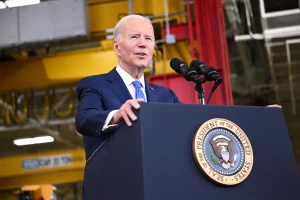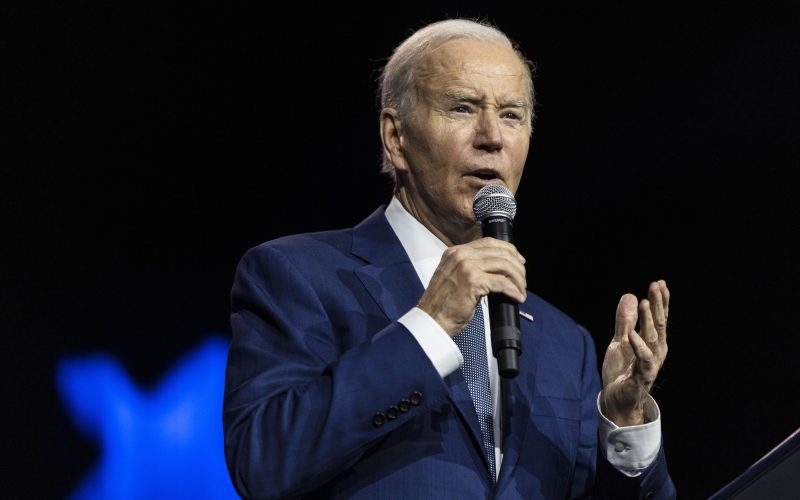The Israel-Palestine conflict has been a longstanding and complex issue in the Middle East, marked by recurring violence and deep-seated political, religious, and social tensions. In recent months, the conflict has flared up once again, drawing international attention and condemnation. Amidst this backdrop, U.S. President Joe Biden has accused Israeli Prime Minister Benjamin Netanyahu of prolonging the Gaza conflict, a statement that has significant implications for international diplomacy and regional stability.
Historical Context of the Gaza Conflict

The Gaza conflict has its roots in the early 20th century with the rise of both Arab and Jewish nationalist movements. The establishment of the State of Israel in 1948 and the subsequent wars have resulted in the ongoing Israeli-Palestinian struggle. Gaza, a small strip of land along the Mediterranean coast, has been a focal point of this conflict, particularly since Hamas, an Islamist militant group, took control of the territory in 2007.
Over the years, Gaza has witnessed numerous military operations, rocket attacks, and airstrikes, leading to substantial loss of life and property. The most recent escalation has been one of the deadliest, drawing widespread international concern and calls for a ceasefire.
Biden’s Accusations Against Netanyahu
In a recent turn of events, President Joe Biden has publicly accused Prime Minister Benjamin Netanyahu of prolonging the Gaza conflict. This accusation highlights several key points of contention:
- Military Actions and Civilian Casualties: Biden has criticized the Israeli military operations in Gaza, which have resulted in significant civilian casualties, including women and children. He has expressed concern that these actions undermine efforts to achieve a lasting peace.
- Humanitarian Crisis: The prolonged conflict has exacerbated the humanitarian crisis in Gaza, where the population is already suffering from severe shortages of food, water, medical supplies, and electricity. Biden has emphasized the need for immediate relief efforts to address these urgent needs.
- Diplomatic Efforts and Ceasefire: Biden has urged Netanyahu to engage in diplomatic efforts to reach a ceasefire. He has accused Netanyahu of being reluctant to pursue meaningful negotiations that could lead to a cessation of hostilities and a long-term solution.
Analysis of Biden’s Stance
Diplomatic Implications
Biden’s public criticism of Netanyahu marks a significant shift in U.S. foreign policy. Traditionally, the United States has been a staunch ally of Israel, often providing diplomatic and military support. Biden’s stance reflects a more balanced approach, aiming to address both Israeli security concerns and Palestinian rights.
Domestic Political Impact
Within the United States, Biden’s accusations have sparked a debate among politicians and the public. Supporters argue that Biden’s stance is a necessary step towards achieving a just and lasting peace in the region. Critics, however, contend that it could strain U.S.-Israel relations and undermine the longstanding strategic alliance.
Regional Reactions
In the Middle East, Biden’s accusations have elicited mixed reactions. Some Arab nations and Palestinian groups have welcomed the U.S. President’s stance, viewing it as a sign of increased international pressure on Israel. Conversely, Israeli officials and supporters of Netanyahu have criticized Biden, arguing that his statements could embolden Hamas and other militant groups.
Comparative Analysis Table
| Aspect | Biden’s Stance | Netanyahu’s Actions |
|---|---|---|
| Military Actions | Criticizes extensive military operations | Justifies as necessary for national defense |
| Civilian Casualties | Highlights high civilian casualties | Claims efforts to minimize civilian harm |
| Humanitarian Crisis | Stresses need for immediate relief efforts | Focuses on security measures |
| Diplomatic Efforts | Calls for diplomatic engagement and ceasefire | Shows reluctance for immediate ceasefire |
| U.S.-Israel Relations | Advocates balanced approach | Relies on traditional U.S. support |
| Regional Stability | Concerned about long-term stability | Prioritizes short-term security |
Long-term Implications
For Israel
Biden’s accusations could lead to increased international scrutiny and pressure on Israel to alter its military strategies and engage in meaningful peace negotiations. This might also affect Israel’s diplomatic relationships with other nations, particularly those that have recently normalized relations under the Abraham Accords.
For Palestine
For Palestinians, Biden’s stance offers a glimmer of hope for more equitable treatment in international diplomacy. However, achieving tangible progress on the ground remains a significant challenge, given the entrenched positions and ongoing violence.
For the U.S.
Biden’s approach could redefine U.S. involvement in the Middle East. By advocating for a more balanced policy, the U.S. could potentially play a more constructive role in mediating the conflict. However, this shift also risks alienating key allies and complicating its strategic interests in the region.
Comparative Analysis of Previous U.S. Administrations
| Administration | Approach to Israel-Palestine Conflict | Key Policies |
|---|---|---|
| Obama Administration | Promoted two-state solution, criticized settlements | Nuclear deal with Iran, military aid to Israel |
| Trump Administration | Strongly pro-Israel, recognized Jerusalem as capital | Peace to Prosperity plan, Abraham Accords |
| Biden Administration | Balanced approach, criticized Israeli actions | Reengagement with Palestinians, support for ceasefire |
Conclusion
The accusation by President Joe Biden against Prime Minister Benjamin Netanyahu of prolonging the Gaza conflict represents a critical moment in international diplomacy concerning the Israel-Palestine conflict. This development underscores the complexities and sensitivities involved in addressing one of the world’s most intractable disputes.
Biden’s stance reflects a nuanced approach that seeks to balance security concerns with humanitarian considerations and the pursuit of a sustainable peace. Whether this approach will lead to a meaningful resolution of the conflict remains to be seen, but it undoubtedly marks a significant shift in U.S. policy that could have far-reaching implications for the region and beyond.
Analysis Table
| Key Aspect | Implication |
|---|---|
| Diplomatic Relations | Potential strain on U.S.-Israel relations |
| Humanitarian Impact | Increased focus on relief efforts in Gaza |
| Military Strategy | Pressure on Israel to alter military operations |
| Regional Stability | Potential for both increased tension and peacemaking |
| U.S. Domestic Politics | Debate over foreign policy and Middle East strategy |
In summary, the evolving dynamics between the U.S. and Israel, as exemplified by Biden’s accusations, highlight the challenges and opportunities in addressing the Gaza conflict. As the situation unfolds, the international community will be closely watching how these developments influence the prospects for peace and stability in the Middle East.












